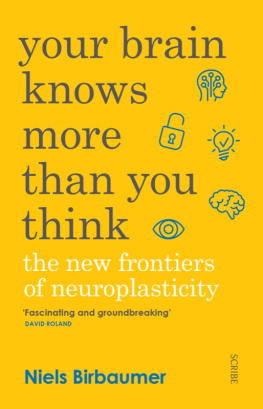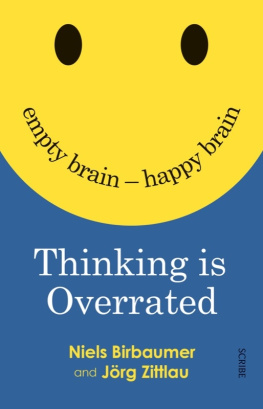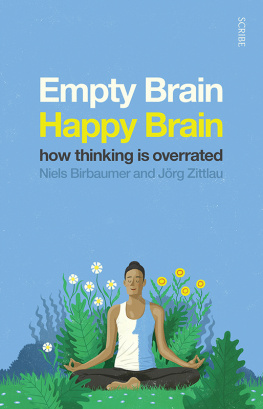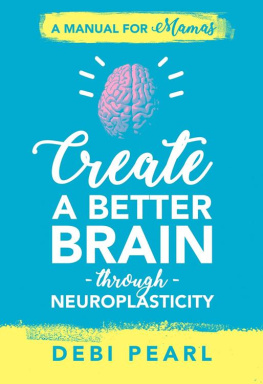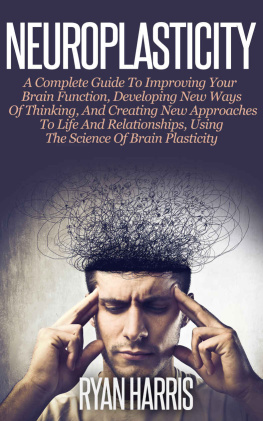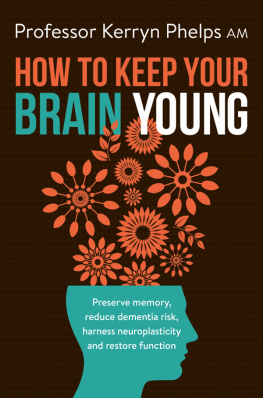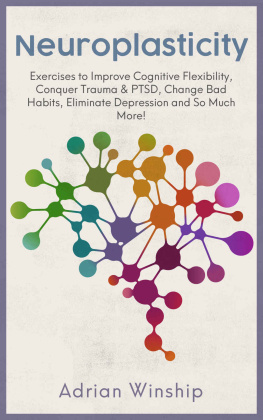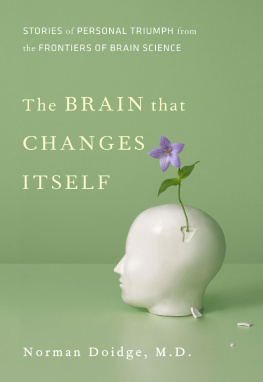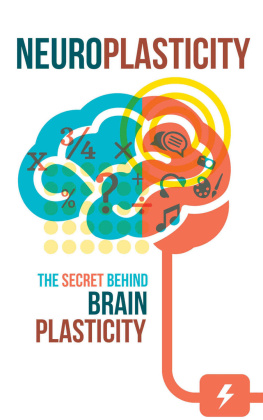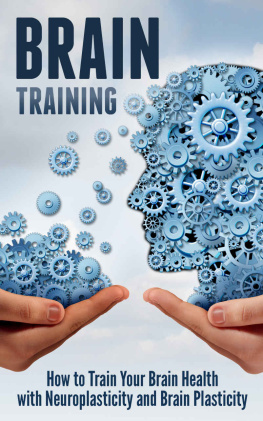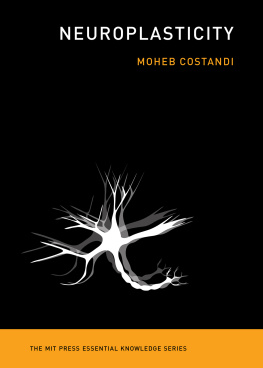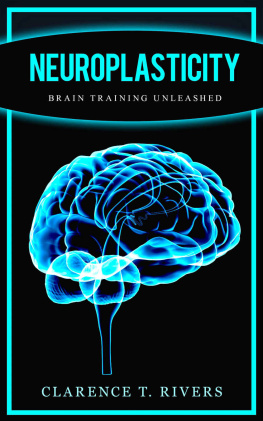Niels Birbaumer - Your Brain Knows More Than You Think: The New Frontiers Of Neuroplasticity
Here you can read online Niels Birbaumer - Your Brain Knows More Than You Think: The New Frontiers Of Neuroplasticity full text of the book (entire story) in english for free. Download pdf and epub, get meaning, cover and reviews about this ebook. genre: Religion. Description of the work, (preface) as well as reviews are available. Best literature library LitArk.com created for fans of good reading and offers a wide selection of genres:
Romance novel
Science fiction
Adventure
Detective
Science
History
Home and family
Prose
Art
Politics
Computer
Non-fiction
Religion
Business
Children
Humor
Choose a favorite category and find really read worthwhile books. Enjoy immersion in the world of imagination, feel the emotions of the characters or learn something new for yourself, make an fascinating discovery.
- Book:Your Brain Knows More Than You Think: The New Frontiers Of Neuroplasticity
- Author:
- Genre:
- Rating:5 / 5
- Favourites:Add to favourites
- Your mark:
- 100
- 1
- 2
- 3
- 4
- 5
Your Brain Knows More Than You Think: The New Frontiers Of Neuroplasticity: summary, description and annotation
We offer to read an annotation, description, summary or preface (depends on what the author of the book "Your Brain Knows More Than You Think: The New Frontiers Of Neuroplasticity" wrote himself). If you haven't found the necessary information about the book — write in the comments, we will try to find it.
Your Brain Knows More Than You Think: The New Frontiers Of Neuroplasticity — read online for free the complete book (whole text) full work
Below is the text of the book, divided by pages. System saving the place of the last page read, allows you to conveniently read the book "Your Brain Knows More Than You Think: The New Frontiers Of Neuroplasticity" online for free, without having to search again every time where you left off. Put a bookmark, and you can go to the page where you finished reading at any time.
Font size:
Interval:
Bookmark:

YOUR BRAIN KNOWS MORE THAN YOU THINK
Niels Birbaumer is a psychologist and neurobiologist. He is a leading figure in the development of braincomputer interfaces, a field he has researched for 40 years, with a focus on treating brain disturbances. He has been awarded numerous international honours and prizes, including the Gottfried Wilhelm Leibniz Prize and the Albert Einstein World Award of Science. Professor Birbaumer is co-director of the Institute of Behavioural Neurobiology at the University of Tbingen in Germany, and senior researcher at the Wyss Centre for Bio- and Neuro-engineering in Switzerland.
Jrg Zittlau is a freelance journalist, and writes about science, psychology, and philosophy, among other topics. He is also the author of several bestsellers.
Scribe Publications
1820 Edward St, Brunswick, Victoria 3056, Australia
2 John Street, Clerkenwell, London, WC1N 2ES, United Kingdom
Originally published as Dein Gehirn weiss mehr, als du denkst in German by Ullstein in 2014
First published in English by Scribe in 2017
by Ullstein Buchverlage GmbH, Berlin. Published in 2014 by Ullstein Verlag
Translation copyright David Shaw 2017
Illustrations copyright Peter Palm 2014 (based on materials from Niels Birbaumer)
All rights reserved. Without limiting the rights under copyright reserved above, no part of this publication may be reproduced, stored in or introduced into a retrieval system, or transmitted, in any form or by any means (electronic, mechanical, photocopying, recording or otherwise) without the prior written permission of the publishers of this book.
The moral rights of the authors and translator have been asserted.
9781925322361 (Australian paperback)
9781911344384 (UK paperback)
9781925548310 (e-book)
CiP records for this title are available from the National Library of Australia and the British Library.
scribepublications.com.au
scribepublications.co.uk
Contents
Foreword:
from a street gang to university is just a small step
the plastic brain
how the brain gives a voice to the voiceless
the quality of life of vegetative and locked-in patients
our brains enormous powers of self-healing
controlling anxiety and depression without medication
even psychopaths can change
living better with Parkinsons and dementia
treating ADHD without drugs
how we can improve our perception
is there life beyond greed, addiction, and want, want, want?
Foreword
Why We Change
Panta rhei . This aphorism was supposedly coined by the ancient Greek philosopher Heraclitus nearly 3,000 years ago. It was his belief that everything flows and nothing remains as it is; the only constant is change. Most of us would agree unreservedly with this idea; after all, we see the world changing every day as we go about our lives and thats not only true of every thing , but of every one , too. Children become adults, eloquent professors turn into care-dependent dementia patients, liberal democrats develop into dogmatic ultraconservatives, dutiful wives mutate into man-eating seductresses, loving husbands become violent rapists, high-school dropouts transform into dotcom billionaires, and wallflowers grow into show-stopping stars, only to end up later as alcoholics. When it comes to the life trajectory of any given individual, anything is possible. Its sometimes fascinating, sometimes horrifying, but always very interesting.
Nonetheless, we have a tendency to freeze-frame our fellow human beings in certain situations. We speak of born orators, artists, or thinkers, but we also identify born losers and born criminals. We are unable to believe hardnosed psychopaths can ever become valuable members of society, and demand they be locked up forever. We call for a humane end for bedridden patients with locked-in syndrome or those in a persistent vegetative state; wed like to put an end to their suffering by switching off the machines their lives depend on. We even doubt that people with attention-deficit disorders, chronic depression, or anxiety will ever be able to get their act together again. The argument we hear repeatedly, even from medical professionals and therapists, is that it is better to put them on medication for the rest of their lives than risk them throwing themselves off a cliff or, even worse, dragging other people into the maelstrom of their dark destiny.
Panta rhei that is the philosophy. It may sound logical and reasonable, but Homo sapiens tends very often to assume the precise opposite, and that tendency is particularly strong when we think about matters of the mind and behaviour. It is in precisely that context that we harbour the fatalistic assumption that some people just cant change, and so there can be only one solution for dealing with them: they must somehow be prevented from becoming a burden on society or from hurting themselves and others. By controlling them, punctiliously isolating them, or even locking them away. Just dont let them disturb the peace, thats the main thing.
Friedrich Nietzsche said that, with the conceptual tools available to them, human beings were doomed to fail repeatedly to express the idea of becoming. He argued that this was the case because, although words could to some extent at least be used to capture that which is , they are not capable of capturing what will be . It may be that this deficiency explains why we repeatedly hear talk of immutable character traits and personal characteristics.
However, if we examine the areas in which it usually occurs, we could just as easily conclude that this attitude towards people stems from fear and laziness. After all, it is easier to lock up psychopaths and throw away the key than to reintegrate them into society and run the risk of them relapsing into their old behaviour patterns. And when locked-in patients are switched off, their relatives and friends are spared a great deal of trouble and frustration.
The wife of one of my locked-in patients had to face the fact that the man lying in bed staring at the ceiling and struggling to breathe no longer bore any resemblance to her once-witty and energetic husband. Although he had learned to communicate with his environment via a brainmachine interface (BMI) while in our care, this was not the normality she had expected from him. She told us she would never have agreed to let us attempt to communicate with him if she had known this beforehand. She wrestled with the idea that maybe his life-support measures could still be terminated. Not because she wanted to end her husbands suffering, but because she wanted to end her own.
We may speculate about why we have this tendency to attribute such immutability to our brain and our behaviour when it suits us. But I am more interested in demonstrating how wrongheaded that idea is. This book is about neuroplasticity the virtually limitless capacity of the brain to remould itself. This book explains why neither locked-in patients nor those with depression, addictions, or anxiety disorders and neither hyperactive fidgets nor ruthless psychopaths are frozen forever in their behaviour patterns, immune to any attempt to influence them. It describes how we can change into a compassionate character within a very short time, but it also shows how we can just as quickly go from being a loving family man to an inconceivably cruel mass murderer and then back again to an upstanding citizen. People often like to reinterpret excrescences such as Nazism, and the subsequent attempts to trivialise it, as exceptional cases in world history, when in fact they are nothing other than perfectly normal products of the enormous plasticity of our brains. Humans have been both blessed and cursed with an almost limitless willingness to learn it is both a boon and our doom.
Next pageFont size:
Interval:
Bookmark:
Similar books «Your Brain Knows More Than You Think: The New Frontiers Of Neuroplasticity»
Look at similar books to Your Brain Knows More Than You Think: The New Frontiers Of Neuroplasticity. We have selected literature similar in name and meaning in the hope of providing readers with more options to find new, interesting, not yet read works.
Discussion, reviews of the book Your Brain Knows More Than You Think: The New Frontiers Of Neuroplasticity and just readers' own opinions. Leave your comments, write what you think about the work, its meaning or the main characters. Specify what exactly you liked and what you didn't like, and why you think so.

